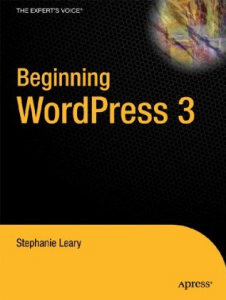Cat Sebastian is known primarily as a writer of steamy, queer historical romances with snappy comedic dialogue and strong social justice themes. Most of her books are romances set in the English Regency period, though more recently she has branched out into the mid-20th century (Tommy Cabot Was Here, set near Boston in 1959) and added mystery to her repertoire (Hither, Page, set in post-WWII England). While the Regency Imposters series appear to be straight romances on the surface, in fact they feature nonbinary or bisexual protagonists. Many of her books involve thieves, con men, or scoundrels who are hiding from their pasts, sometimes under assumed or mistaken identities. Partners often support each other’s professional endeavors even before they work out their romantic relationships, and several of her protagonists are hapless or scatterbrained intellectuals who find balance with partners who are more practical, if sometimes less socially respectable.
Courtney Milan
Courtney Milan is a close match for Cat Sebastian’s wit, social commentary, and portrayal of strong working partnerships. Most of her historical romances feature straight relationships set in the Victorian era; the exceptions are After the Wedding (in which the heroine is bisexual) and its short offshoots The Pursuit Of… (m/m romance set in 1770s America) and Mrs. Martin’s Incomparable Adventure (f/f romance between older women). Queer relationships are central to her contemporary romances, however, and all of her protagonists are socially progressive.
Like Cat Sebastian, Milan is known for hilarious dialogue and competent, intellectual protagonists whose partners support their careers. The author’s expertise in science and law often come into play—like Sebastian, Milan is a former lawyer. Most of her works since 2014’s Talk Sweetly to Me include people of color, and her Worth Saga series leaves England behind after the first two books in favor of China and the South Pacific. Milan’s characters are more likely to remain on the right side of the law—the hero of Unraveled is a magistrate—but they often question whether the law is right, and sometimes set out to change it.
Milan’s characters are often critical of the political status quo; the Brothers Sinister series includes a duke who wants to abolish the peerage. The sex is steamy and the language is salty; one secondary character in Trade Me expresses love through creative swearing.
KJ Charles
KJ Charles writes scathingly funny, explicitly sexy historical romances and mysteries that use the relationships of queer men and women to explore class differences and political issues in England from the Regency era through the 1930s. Her characters are spies, con men, scoundrels, and radicals–and if they aren’t on the wrong side of the law at the beginning of the story, they will be by the time she’s done with them. Her plots are often inspired by Victorian pulp melodramas, with over-the-top villains and swashbuckling fights. A few are gentler, if a little too raunchy to be called cozy. Band Sinister is a remix of Georgette Heyer’s Venetia with the genders of the siblings flipped–if the hero had brought his scandalous orgies with him instead of coming home alone.
The Magpies series and Spectred Isle feature shadowy magicians in secret societies, while her more recent works place the lovers on opposite sides of real historical political conflicts. Nevertheless, strong working partnerships are always an element of the romances, and staunch loners will find that their partners help induct them into supportive communities of similarly marginalized people. Fans of Sebastian’s Page and Sommers books should start with the Will Darling mystery series beginning with Slippery Creatures.
Olivia Waite
Olivia Waite’s work includes the Regency romance The Lady’s Guide to Celestial Mechanics, which has a very similar setup to Cat Sebastian’s The Lawrence Browne Affair in that one character is hired to be the academic assistant of the other. In this case they’re both women. One is the widow of a wealthy scientist; the other is a scientist’s daughter and uncredited collaborator who’s been handling his correspondence for ten years. (See also Courtney Milan’s The Countess Conspiracy, which also deals with women’s invisibility in 19th Century academia.) Waite’s work is not as overtly funny as the others listed here, but this is a lovely little novella that features very prickly people supporting each other’s intellectual endeavors and learning to be tender with their partners.
Kate Ross
The late Kate Ross wrote wonderfully detailed mysteries set in Regency England featuring Julian Kestrel, a former thief posing as a trend-setting fashionable gentleman. Julian takes up detection to alleviate his boredom with society, and at first he remains aloof and apart while providing scathing commentary to the reader as he investigates upper class crimes. In the fourth book, however, he travels to Italy, and as he investigates a murder in the world of opera, some of his façade falls away and his mysterious backstory is partially revealed.
Ross’s untimely death in 1998 caused the series to fall out of print, and her estate has never licensed ebooks. However, the books were reissued by a small press beginning in 2010, and these editions might have found their way into library collections.
The pace is slower and the plots more intricate, but fans of Cat Sebastian might appreciate Julian’s acerbic wit, his dual identity, his friendship with his ex-pickpocket valet, and his relationship with the valet’s streetwalking sister. The novels are Cut to the Quick, A Broken Vessel, Whom the Gods Love, and The Devil in Music.
Madeleine E. Robins
Madeleine E. Robins wrote three mysteries in an alternate Regency England where Queen Charlotte never died in childbirth and women are somewhat more liberated than in the real world. The heroine, Sarah Tolerance, is a swordswoman and detective for hire. She lives in an apartment connected to a brothel operated by her aunt, and she moves across social strata as she investigates on behalf of her wealthy clients. A slow-burn romance with a police detective develops over the course of the trilogy.
Fans of Cat Sebastian will enjoy the blend of mystery and Regency romance, the prickly heroine, her flexible relationship with the law, and the critical commentary on the patriarchy and the upper class. The books are Point of Honour, Petty Treason, and The Sleeping Partner, and you will find them shelved in the science fiction and fantasy section.
Cecilia Grant
Cecilia Grant has published only a few romances, all in the Blackshear series. You can’t go wrong with any of them. The first is A Lady Awakened, about a widow who blackmails her neighbor into a transactional relationship. She’s determined not to have fun or be charmed by him in any way, and of course that’s not going to work out very well for her. Grant generally does not get into big social justice themes, but her heroines are very feminist and opinionated, and she does funny, snarky dialogue so, so well.
Originally written in June 2021 for the reader’s advisory class in my MLIS program. There is a short video that includes some of these suggestions alongside a Book Blitz, a set of recommendations on a linked theme.



